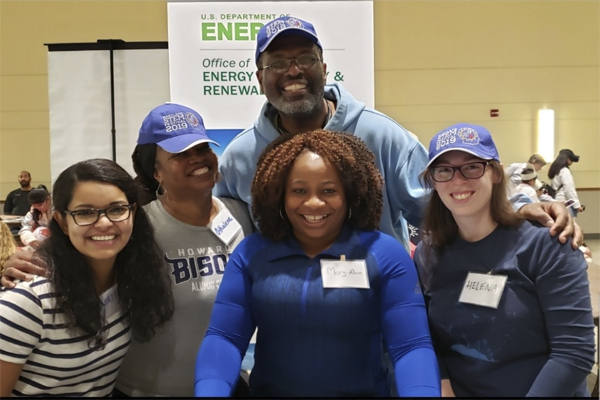“It’s not easy to create a sense of belonging and inclusion, especially when you don’t feel that you belong,” says Othalene Lawrence, Environmental Scientist and Senior Diversity and STEM Programme Leader at the Office of Energy Efficiency and Renewable Energy (EERE) at Washington DC’s Department of Energy (DOE). This week’s Guest Columnist provides insights into how her personal experiences have shaped her as a D&I champion, and offers practical tips on how to promote belonging & inclusion in the workplace.
There are several preconceived notions that diversity and Inclusion (D&I) professionals are void of bias, challenging history, or baggage – whether it be lightly or heavily weighted. Many see us as though we are free and clear of the bitter-sweet surprises that life has to offer. The truth of the matter is that many of us find ourselves in this D&I space because of what we bring to the table.
We may have experienced many challenges, setbacks, comebacks and come ups. For me, I grew up in Texas, as an only child, during the emergence of the Civil Rights movement where I was the only African-American student in an otherwise all-white Lutheran parochial elementary school.
CHALLENGING EXPERIENCES
My life was filled with repeated death threat calls during the night, having our home and property vandalised, being excluded for entering certain places of business, called out because of my birth name, and enduring demeaning comments at school from fellow classmates and teachers on a daily basis. After being transferred to a local public school, I was then bullied for being ‘proper’, well dressed, respectful and smart. The only safe and secure place for me was amongst my family who cherished, nurtured and supported me, and let me know that I exemplified everything beautiful in their eyes.
What these experiences taught me is that I am stronger than the opposition, possess the ability to persevere, and that my determination overrides any obstacle that presents itself to me. Experiencing challenging situations can groom us for being an excellent advocate for others. We can be a beacon of hope, an effective listener and a soft shoulder to lean on when needed.
As a result of this, and similar situations, I know what it is like to feel as though you don’t belong or have a voice, and to feel isolated and viewed as being inadequate. However, I have found several ways to navigate through the maze of disconnectedness of being forced to sit on the sidelines, yet expected to play with passion and zeal for the ‘team’ in spite of such feelings. The following strategies may help those going through a similar experience:
- Draw from your experiences to identify with others
Many times leaders have no clue as to what their employees feel, experience or actually endure due to their own inability to connect and identify. There are misconceptions that people don’t want to be a ‘player’, are not interested, or are different. When, in fact, they may have tried to connect and were ignored. Did they have an idea that was dismissed? Have they been constantly overlooked for opportunities? Have they fallen victim of office gossip? Are they the ones that are never invited to have coffee in the morning?
As a D&I leader with ‘sideline’ experience, you can utilise your feelings of isolation to connect with those that you serve who are experiencing the same things. Because of your perspective and history, you know what neglect and not feeling as though you belong is like. You also know what is missing in the organisation’s culture to promote a true sense of belonging, inclusiveness and wellbeing. The value that you bring to the table is that you ‘get it’ and you are positioned to truly understand, identify and connect. Employees can easily discern between someone who is authentic and those that manoeuvre through a scripted lens. What you bring to the table is a genuine understanding of what it takes to create, cultivate and sustain a sense of belonging and inclusion within the workplace.
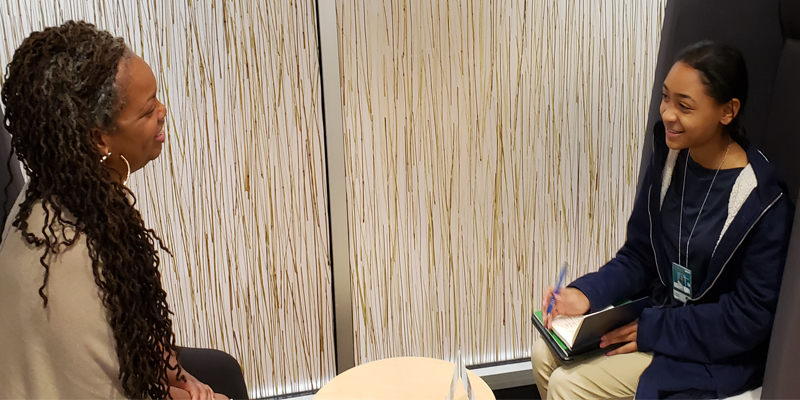
- Connect with like-minded people
If there is one thing that I have learned during my career, it’s the absolute power of collaboration and networking. Join a D&I council or group outside of your organisation or agency, keep in touch with other D&I professionals and leaders, offer your services on D&I-related initiatives, and draw from the energy and brilliance of like-minded people. This is not to say that you shouldn’t connect with those that think differently than you, but to encourage you to find solace amongst those who can relate to your perspective and vision.
When you are being faced with constant opposition, it may be time to reach out to others to test your theories and ideas. In doing so, you are allowing for the evolution of thought, welcoming complementary and alternative viewpoints, and expanding your own perspective by inviting others in by sharing. As a result, you may create an opportunity to collaborate on ground-breaking initiatives that expand beyond your original intent.
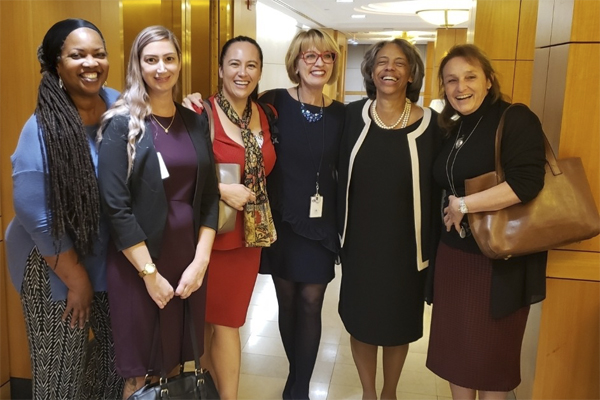
- Take advantage of teaching moments
There are times that we may find ourselves in situations where our patience is being challenged, or where we are misunderstood or misrepresented. Instead of going into an automatic defensive stance, take a moment to see if this is a great opportunity to engage and educate. For example, our organisation planned on hosting a Thanksgiving Potluck to celebrate the holidays. Knowing that this ‘celebration’ is offensive to many, especially our Native American brothers and sisters, I decided to take advantage of the opportunity to educate and engage in alternative thought.
My general approach to challenges is to first identify the issue, research and evaluate the data, execute and monitor the situation. Therefore, I realised that Thanksgiving is not considered a day to celebrate, but an actual day of mourning for the Native American community. Then I had to conduct research to substantiate this fact and share it with management. As a result, an alternative title (Operations Potluck) was given for the event and it was monitored to ensure a positive outcome. The event still took place, however, we avoided exclusion by association.
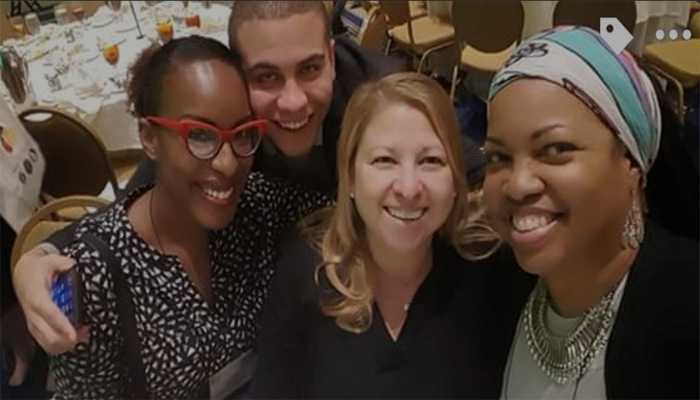
- Find strength in helping others find their voice
Maya Angelou said it best: “Be a rainbow in someone’s cloud.” It is during my most dire moments, that I have found solitude and strength by helping others and being available to their needs.
Approximately 10 years ago, I relentlessly encouraged a fellow co-worker to pursue and finish her college undergraduate degree. She was very resistant and didn’t believe that she could do it and doubted herself and her abilities. Her opinion of herself was unacceptable to me, and I actually forced her to sit down and complete the admissions application and write her essay. Ten years later, she relentlessly sought me out to tell me how my involvement changed her life and that she actually finished her degree.
To this day, I’m still trying to remember the details, but the reality is that special random moments can go a long way in changing and shaping the lives of others. This may involve volunteering at a local soup kitchen, mentoring future young leaders, cheering with your fellow alumni cheerleaders during Howard University’s homecoming, or spending time with retired veterans.
There is something invigorating with focusing on the needs of others that helps to dissolve your own feelings of isolation and being disconnected. Engage in a diverse pool of opportunities to sharpen your perspective while sharing your time and talents. Also, I have found that one of the best ways to enhance your own knowledge is by teaching and coaching others. So, in the words of Maya Angelou: “Be a rainbow in someone’s cloud.”
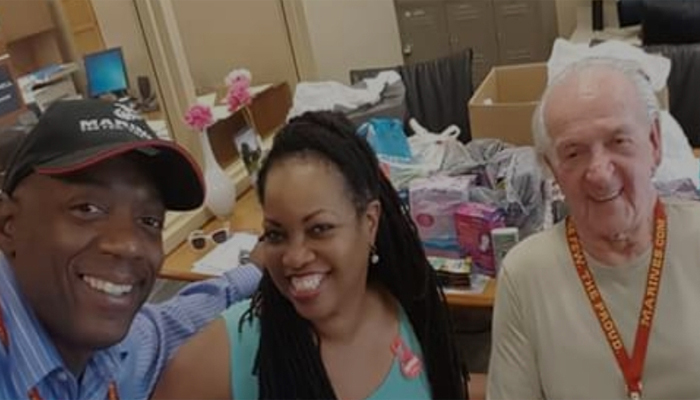
- Take time for self-discovery
It was right before I had to deal with the inevitable, that I began to write poetry. Little did I realise that writing poetry was going to be the vehicle that would help to cushion and console me during a very turbulent time in my life. By writing poetry, I began to discover the depth and range of my resilience, brilliance and latent gifts. If I did not allow myself to succumb to this divine literary calling, I would not have realised my own strength and another dimension of my creative abilities.
When experiencing feelings of isolation and being disconnected, pour yourself into what makes you happy and nurtures your passions, or try something that you have been interested in or have been resistant to try. For example, I am extremely afraid of heights. However, I’ve always wanted to go zip lining. About three years ago, I decided that I was going to challenge myself and face my fears. Therefore, my daughter and I went zip lining in the Shenandoah Valley that comprised of approximately 12 zip lines with increasing difficulty. It was absolutely exhilarating. I’m still very afraid of heights, but I’m not afraid of facing my fears and weathering the storm.
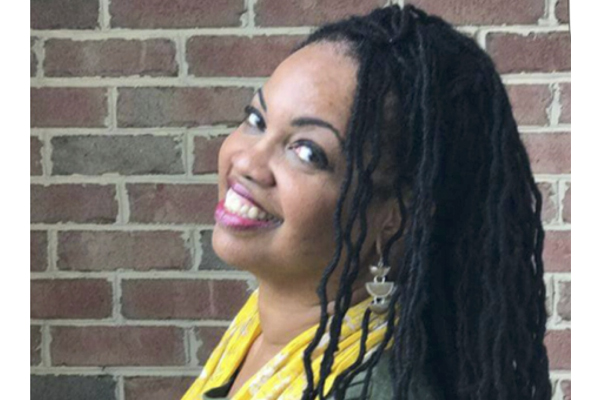
Photo credit: Germaine Lawrence
- Make space for your own voice and needs
Being strong is not enough or self-sustaining. You must take time to ensure that your own voice isn’t being silenced and that your needs are being nurtured and taken care of. Are you refueling your knowledge base? Are you paying attention to your health and chi? Are you taking time to develop new talents?
Someone once said: “The worst part about being strong is that no one asks if you’re okay.” Often times when you are the champion, influencer, shaker and breaker, or ‘worrier’, people tend to forget that, in spite of your resiliency and perceived super powers, you are actually human and vulnerable. Do not wait for others to check on you, even though it would be nice. Work on being in tune with your own body’s signals for the need to refresh and reenergise.
Better yet, set time aside to ensure that you are taken care of. If you are not okay, you are of no use to anyone else. When you work on being the best possible version of yourself, you make better decisions, draw more positive energy and people within your influence, evolve and achieve the unachievable. You position yourself to bring light, joy and happiness to others. Cultivating your own sense of wellbeing, not only helps to present your best self, but inspires others to do the same.
CONCLUDING THOUGHTS
Having a sense of belonging is powerful, and sets the stage for success and productivity. A prime example of this in December 2019, Edward St. John, the Founder and Chairman of St. John Properties, celebrated the company’s recent expansion. The company’s development goal was achieved in only 14 years, instead of an estimated 40. It was his decision to share the company’s success with a life-changing $10 million bonus distributed amongst his 198 employees. Every staff member received approximately $50,000 each, in addition to their regular annual bonus. According to St. John, “I wanted to celebrate it [the company’s success] and make it meaningful for the people who did it. I steer the boat, but they are the ones that run the boat.”
When leaders validate their employee’s value and support their success in this way, everyone wins. St. John’s actions were genuine and generous. As a result of his actions, he has a team that experiences belonging, inclusion, respect and wellbeing. He is ensuring that his employees know that they are valued and valuable. Because he ‘gets it’, he understands that his success is a direct result of his team’s efforts, commitment and energy. It would be nice if all leaders understood this simple principle. However, if you are not experiencing a true sense of belonging and wellbeing where you are, then create your own, seek out opportunities to engage outside of your organisation, and nurture the beauty and strength that lies within.
AUTHOR BIOG: Othalene Lawrence is the Environmental Scientist and Senior Diversity and STEM Programme Leader at the Office of Energy Efficiency and Renewable Energy (EERE) at Washington DC’s Department of Energy (DOE). For more information about her role click here.














